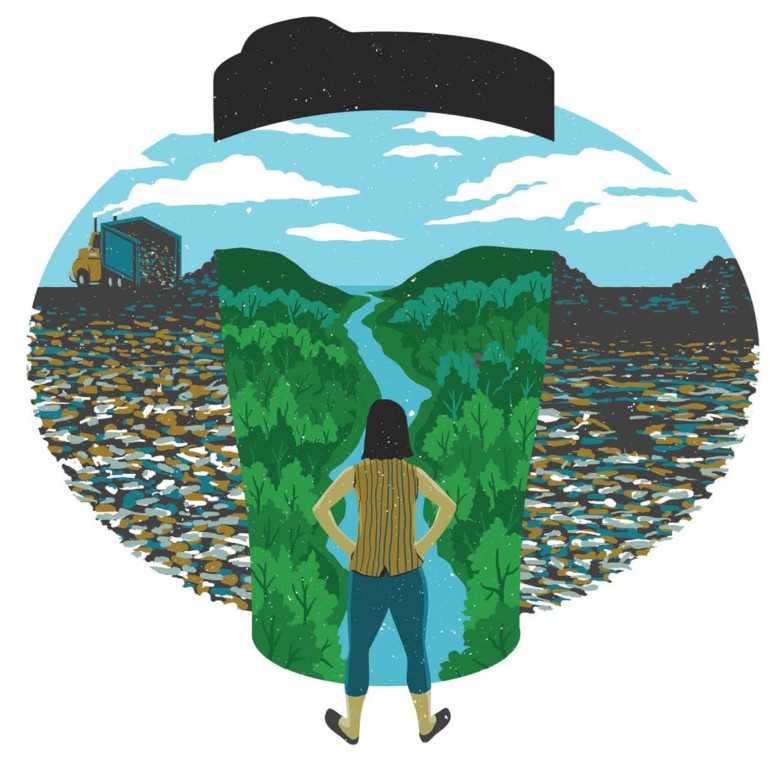Headlines tell the story: “Texas-Size Garbage Patch Floating in Pacific Ocean.” “300 Pounds of Plastic Bags Found in Dead Whale.” “Americans Waste 40 Percent of Food Produced.” Tired of that kind of story, four Marin residents set out to do something about it.
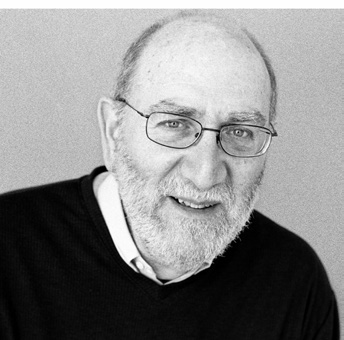
Appropriately, Greenbrae’s Paul Tasner’s packaging firm is called PulpWorks. “Our mantra,” he says, “is ‘Molding a Better World.’ ” What differentiates PulpWorks’ products is that they’re made of bamboo, sugarcane pulp or even old cotton T-shirts, rather than plastic. “Once it’s in a landfill, plastic takes hundreds of years to decompose,” the 72-year-old late-in-life entrepreneur and former TED speaker points out, “while the packaging PulpWorks produces pretty much decomposes inside of 90 days.”
To date, PulpWorks’ customers include EO Products, Google, Campbell Soup and Anthropologie. So far clients have placed mainly smallish specialty orders, and Tasner would love to land a customer like the cosmetics giant CoverGirl. “However, with their volume, our product being a tenth of a penny per item ordered is a big deal,” he notes, “and, although plastic is the enemy, it’s also cheaper.”
Despite cost challenges, Tasner, who has a Ph.D. in mathematics, sees a bright future for PulpWorks. “Many corporations are now taking the position that their commitment to society doesn’t end when their products are sold,” he says. “They’re now assuming responsibility for a product beyond the sale date all the way until [the item] has decomposed back into Mother Earth, which is right and good for everyone.” In Europe, Extended Producer Responsibility laws require that manufacturers pay added fees to governments when using plastic packaging. “This money then goes to cover the costs of recycling or finding ways to shorten the centuries-long life of plastic once it reaches a landfill,” he says. He’d like to see that happen in America.
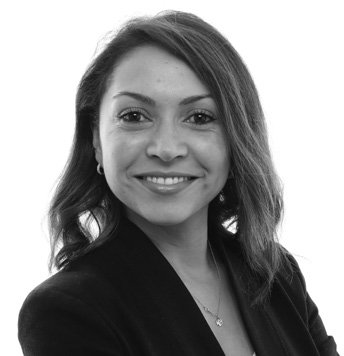
Corte Madera resident Kathy Wall is the Household Hazardous Waste Coordinator for Marin Recycling and Resource Recovery in San Rafael. “Whatever electronic or chemical waste you have around the house — an old TV or computer, unused paint, fluorescent bulbs, even motor oil — we have a way to recycle, reuse or repurpose it,” she says. The facility she oversees provides services to residents everywhere in Marin (except Novato) for free and is sponsored by Zero Waste Marin, San Rafael’s fire department and the Marin Recycling and Resource Recovery Association.
“Our current target is safely disposing of batteries,” Wall says. “Flashlight batteries, zinc button, lithium, rechargeable and alkaline batteries should absolutely not go out with the trash.” Recently, according to Wall, recycling facilities in California have experienced fires because batteries, believed to be dead, still had a charge and ignited when their terminals touched. The result, says Wall, “Was that buildings and recycling equipment were burned creating a very expensive problem to clean.” To mitigate the fire issue, Call2Recycle, a battery stewardship organization, started the “Avoid the Spark – Be Battery Safety Smart” campaign in which Wall decided to participate. “Currently, the Household Hazardous Waste facility takes in close to 30 tons of old batteries of all sizes a year,” adds Wall.
In addition to the fire danger, heavy metals like mercury, lead and nickel can leach into groundwater from batteries taken to landfills. “That’s a danger to human health and the environment,” she points out. To encourage a safer approach, Wall offers a sturdy cardboard collection box residents can keep in their kitchens or garages and take to her facility when it’s full of batteries. “People had been bringing in paper bags full of dead batteries,” she says, but “this box makes it easier and safer because it comes with instructions on how to properly dispose of household batteries.”
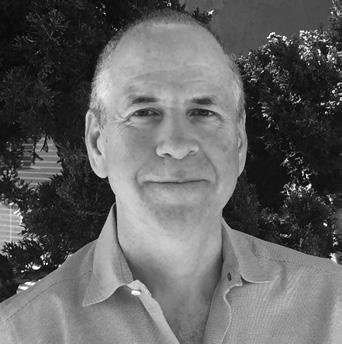
Marv Zauderer worked with Apple for several years and then as a psychotherapist before starting ExtraFood in Kentfield in 2013. “I was shocked by the hunger problem in our community,” he says. “According to the Marin County Department of Health and Human Services, one in five Marin residents worry where their next meal is coming from.” ExtraFood’s mission is to help end hunger and food waste in Marin; the program receives food from schools and businesses that have too much and immediately delivers it to those who, at that moment in time, don’t have enough. “We call our program ‘food recovery with the human touch,’ ” he says with a smile.
ExtraFood differs from the San Francisco–Marin Food Bank in that it handles donations not cost-effective for the food bank to pick up and delivers the food directly to nonprofits serving those in need; also, it has no facility to store food. Zauderer’s sources include markets, such as Nugget in Corte Madera, Tiburon and Novato, which may have fresh but slightly bruised fruits and vegetables, as well as caterers who have leftovers. The 107 service sites include the People’s Inter-Cities Fellowship in Marin City and the St. Vincent de Paul Society dining room in San Rafael.
To accomplish ExtraFood’s ambitious work, Zauderer relies on hundreds of volunteer workers and technology that connects sources and recipients on a moment’s notice. “When we get a spontaneous call from a food donor, we immediately send an email and text out to our team of volunteers; often they respond that they’re nearby and will pick up and deliver the food.”
Climate change is another of Zauderer’s motivating factors. “When wasted food goes to a landfill, it releases an enormous amount of methane gas,” he says. “If global food waste were a country, it would rank third behind China and the U.S. in greenhouse gas emissions.”
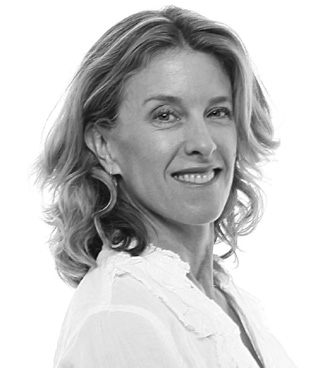
Chance Claxton started Sausalito’s U-Konserve soon after she learned that 500 million plastic straws, 110 million plastic utensils and 7.2 million plastic bags are used and discarded in the United States every day. The company sells reusable food storage products through retailers such as Whole Foods, The Container Store, and Good Earth markets in Fairfax and Mill Valley as well as its own company website; items include a stainless steel straw (with cleaning brush), bamboo eating utensils, stainless steel containers, colorful insulated tumblers, a lunch tote made from recycled bottles, and a baggie alternative called Food Kozy wraps.
“The company’s running tagline is ‘committed to reducing the amount of trash we produce, one sip or one bite or one meal at a time,’ ” Claxton says. U-Konserve currently has eight employees; an office in both Dallas, Texas, and Sausalito; and a warehouse in Scottsdale, Arizona; this year’s sales are expected to exceed $3 million.
Before starting U-Konserve in 2008, Claxton graduated with a bachelor’s in international business from San Diego State, studied for a year in Spain and Rome, and was among the first employees of Design Within Reach. And “with U-Konserve being a bootstrapped startup,” she says, “I feel I’ve also earned my MBA.”
This article originally appeared in Marin Magazine’s print edition with the headline: Waste Warriors

